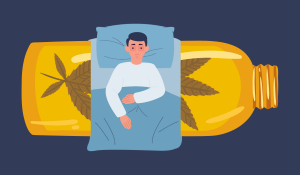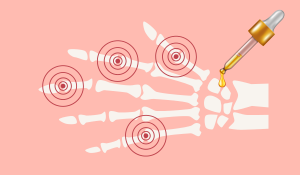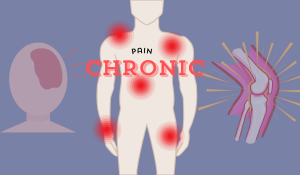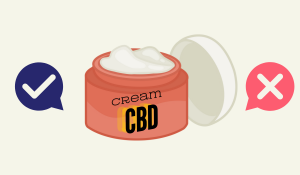More research needs to be conducted before coming to a conclusion on whether CBD reduces blood sugar levels. However, CBD has been found to reduce neuropathic pain which may indirectly reduce blood sugar.
Though more research is needed, CBD has been found to aid in the treatment of the symptoms of diabetes: inflammation and high blood pressure.
Chronic pain is a common symptom experienced by diabetics. Because of this, many of those with diabetes have turned to CBD to help stymie the cramps and discomfort. Through this use, researchers study another impact that CBD may have for diabetics: lowering blood sugar levels.
It should be stated that more research needs to be conducted before arriving at the firm conclusion CBD oil stabilizes blood sugar levels. Further, while the initial studies have been promising, it’s not entirely clear how or why CBD may help manage blood sugar levels.
A common symptom of diabetes is pain, discomfort, and cramping. When someone experiences pain, a hormone is released into the body that increases blood sugar levels. Because initial research shows that CBD reduces neuropathic pain, it may play an indirect role in managing the blood’s concentration of sugar or glucose.
Another study showed that mice who received CBD after experiencing a frequent symptom of diabetes were found to have less blood sugar. Before declaring this a victory for CBD, this study will need to be repeated with humans, too.
CBD interacts with the body through the endocannabinoid system. This system plays a role in regulating the body and promoting homeostasis. CBD has antioxidant properties, which can aid in lowering arterial inflammation, something often experienced by diabetics.
High blood pressure is another symptom associated with diabetes. A 2017 study found that a single dose of CBD keeps blood vessels open which reduces blood pressure. This study was conducted with humans, demonstrating the potential efficacy of CBD to alleviate symptoms of diabetes. If you’re struggling with your diabetes, make sure to talk to your physician. They can go over the symptoms you’re experiencing and work with you to discover the best treatment options for your needs. If they suggest CBD oil, they can also discuss the best products and dosage to get you feeling better.

If you've ever wondered about using CBD for insomnia, you should know how CBD helps anxiety, stabilizes your sleep-wake cycle, and makes falling asleep easier.
Read More
CBD-infused salad dressing: Imagine a fresh, crisp salad enhanced with a light, herbaceous vinaigrette containing your daily dose of CBD. To create this, you’ll need...
Read More
1. What Is CBD and Why Is It a Game-Changer for Skin Health? CBD (cannabidiol) is a natural compound extracted from the hemp plant. Unlike...
Read More
The Legal Landscape of CBD The 2018 Farm Bill and Its Impact The signing of the Agriculture Improvement Act of 2018, commonly known as the...
Read More
Breakthrough #1: CBD’s Role in Chronic Pain Relief Chronic pain robs people of precious moments. A 2021 study in the Journal of Pain Research highlights...
Read More
Understanding Arthritis Pain Arthritis is a chronic condition that affects daily activities, from opening jars to taking walks. Here’s a look at the two most...
Read More
Types of Pain CBD May Alleviate CBD shows promise in managing various types of pain: CBD vs. Traditional Painkillers Traditional painkillers like opioids can be...
Read More
CBD Cream Side Effects – Focusing on Topical Applications How CBD Creams are Made Ever wondered how CBD creams come to life? It’s a fascinating...
Read More
Therapeutic Uses of CBD Managing Chronic Pain with CBD Struggling with chronic pain? CBD might help. Studies suggest it can reduce inflammation and alleviate discomfort,...
Read More
Concerns About Potential Side Effects on Liver and Kidneys Despite its growing acceptance, concerns about CBD’s effects on vital organs like the liver and kidneys...
Read More